Oh Suh-NAP!
Love her or hate her, you gotta admit that Miss Elektra's trip to the Library was fuckin' awesome.
Caption This

"Yeah, I'd definitely get that looked at. I don't think it's supposed to be that color."
Everything Old is New Again
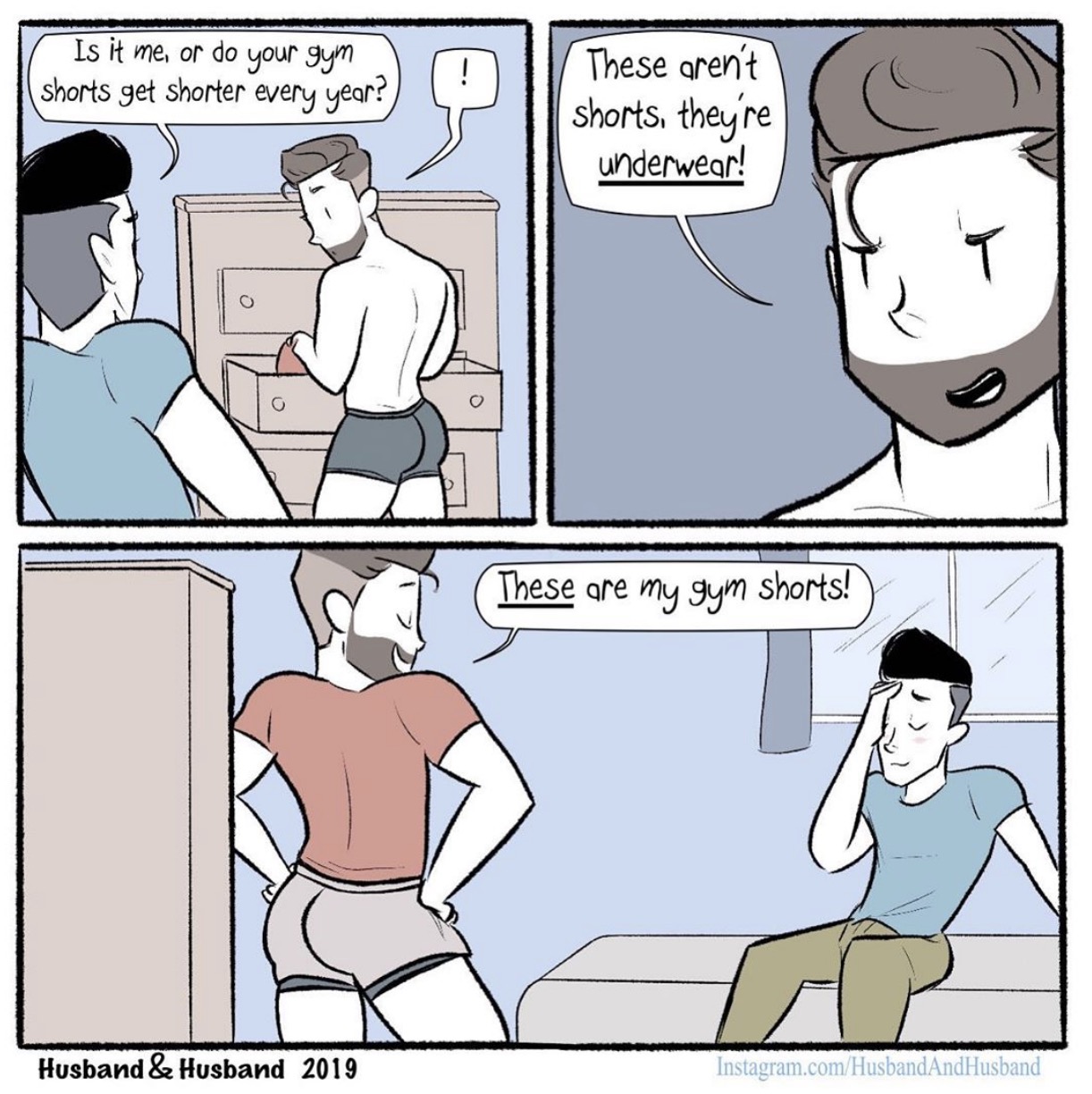
365 Days of UNF: Day 237 (NSFW)

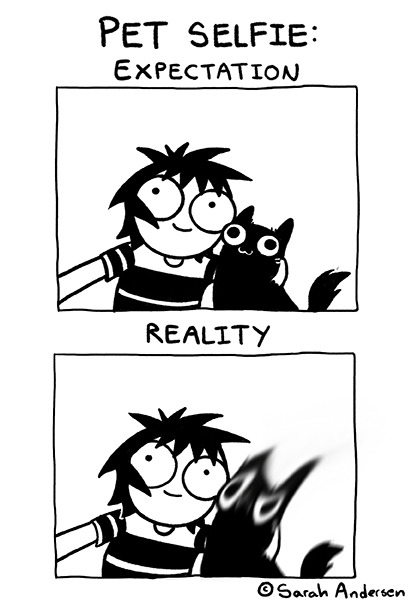
Stories – The School Years
In the original incarnation of Voenix Rising—that I stupidly deleted in 2011 after realizing a link to it had been sent out in the signature line of emails I'd sent to recruiters—I'd written multiple posts documenting my coming out and first tentative steps into gay life. It was one of the few things I truly regret not having backed up.
More recently, I've been following Mike Balaban, a gay historian on Instagram who is doing much the same thing, this time with pictures. From what I've seen we're about the same age, and considering how everything else in the world is fucking awful right now, it's inspired me to relate my stories again, to do something positive.

Grade School
Like a lot of gay men, I'd known I liked boys instead of girls from an early age. When I first discovered masturbation in fourth grade, it was sex between men and women that captured my imagination. But then my focus turned more and more to the imaginary men in these imaginary encounters, and finally coalesced with my Phys Ed coaches and the men—not the women—in the Sears catalogs exclusively fueling my fantasies. Oh, how I eagerly anticipated the arrival of the Summer Catalogs because it meant shirtless guys in swim trunks!
Growing up, my exposure to men-who-love-men had been less-than-ideal. I don't know if my mom already sensed my budding gayness or if she was just trying to—warn?—me, but I remember her coming into my room one evening in advance of a visit by my dad's brother. She turned on the television (or changed the channel) to show me an interview happening with Truman Capote. "That is a homosexual," she said, "And so is your Uncle Eddie. I don't want you to be alone with him." The old child molester trope…
My uncle was nothing like Truman Capote. He wasn't a butch queen, but neither was he anything like the mincing, lisping example my mom was so keen to show me. Anyhow, I took some solace in knowing I wasn't the only one in the world like that, and not the only one in the family. [Spoilers: If I only known the full extent!]
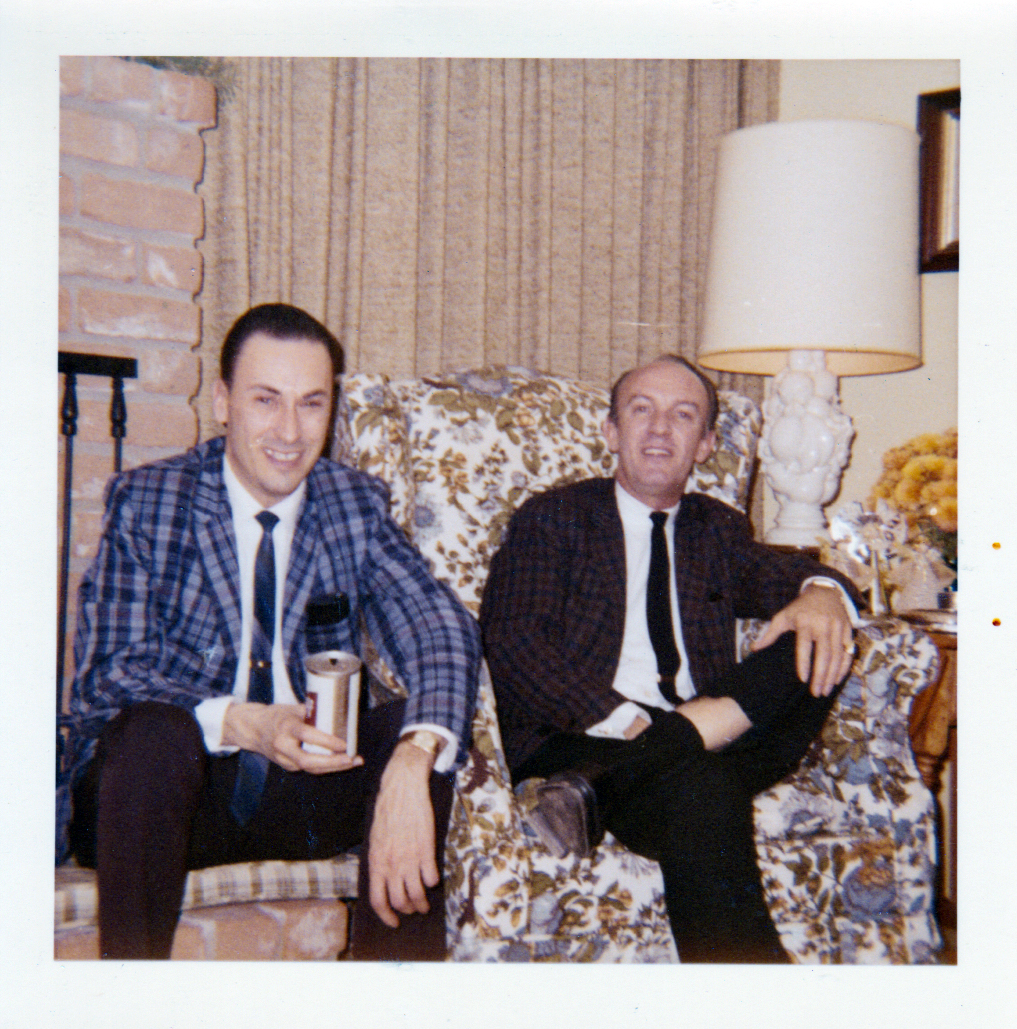
I remember my uncle (especially after I became an adult) as loving, generous, and very, very funny. As a child I always thought him so cosmopolitan for living in New York City. I mailed him my coming out letter in the late 1980s (because somehow he hadn't gotten the news), telling him I was "living the life" in San Francisco and hoping we could connect over drinks sometime to share stories. After not hearing from him a couple years thereafter, one Christmas in the 90s a card arrived from him with a five hundred dollar check enclosed and a note that read, "I'm sure you'll be able to put this to good use in 'frisco."
High School
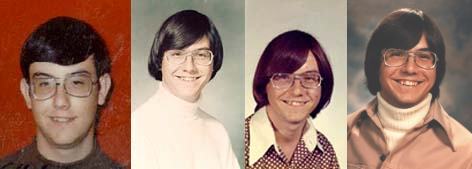
My freshman year in high school was the first time I fell in love with another boy. His name was Tom Pleger.
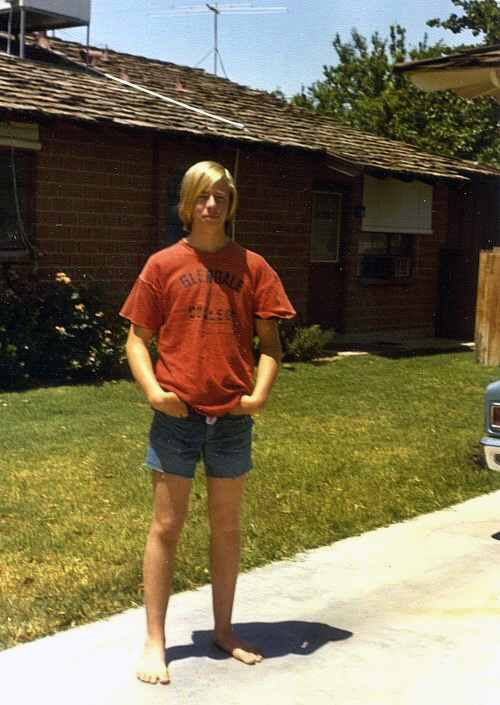
It was odd how we initially met. I was crushing hard on his best friend, a guy named Jim Hurst, with whom we all shared a Freshman Communications class. Jim wouldn't give me the time of day, but Tom and I soon discovered shared interests and we started hanging out together.
Tom's family belonged to a neighborhood Lutheran church. I'd been raised Lutheran but my family was one of those Christmas and Easter churchgoing broods. That was, until I met Tom and convinced my mom that we needed to start attending—and more regularly than just twice a year. (Ulterior motives, of course.) She was initially reluctant since this church was Missouri synod and we were Wisconsin. (How that makes any difference is just one more reason when I came out I gave up on organized religion altogether. It's all bullshit.)
Anyhow, we started attending on a regular basis and I found Jesus and developed a typical teenage religious streak that no doubt absolutely drove my dad (who was very non-religious) to absolute distraction.
Sadly, my romantic overtures to Tom were not reciprocated, and my confession of true love ended our budding friendship about a year after we met. Nothing more was said of it, and surprisingly, when we crossed paths at church he and his family were still cordial.
It was during my sophomore year that—perhaps because of my newfound churchgoing habits—my mom decided that I was well overdue for my Confirmation; a right-of-passage that would allow me to start taking communion. This led to classes led by the new, young, cute, and very liberal pastor who had just come on board. I remember the subject of homosexuality coming up during one of our question and answer sessions and he pointed out that Jesus never said anything about the subject…
Anyhow, these classes threw yet another boy into my life, Mike Knigge.
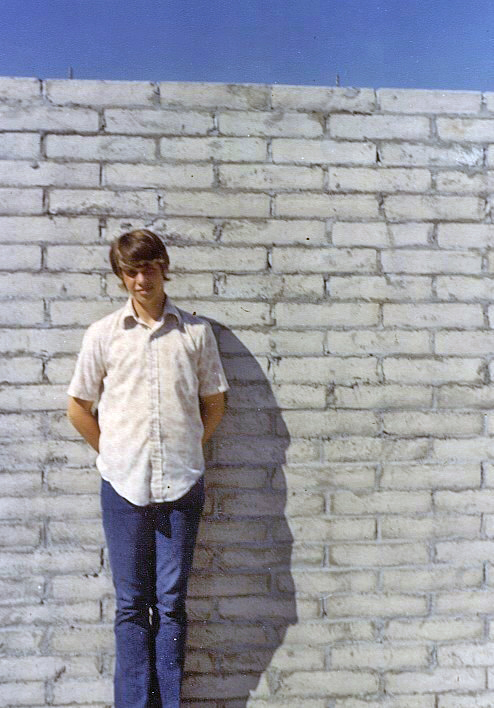
Mike was a year younger than me and a few inches taller. His family had recently moved to Phoenix from Lake Zurich, Illinois, a small suburb north of Chicago. From his description (he was terribly homesick) it sounded like a wonderful little hamlet, and I often fantasized moving there with him after we finished college and building a beautiful English Tudor home (my preferred architectural style at the time) with a huge swimming pool and cabana out back. I don't remember much of our year or so together, but it must've been something special because I grew to love him as well.
Like Tom, it all fell apart after I confessed my feelings to him.
My junior year, after Mike, I took a break from romantic entanglements with boys, no doubt because no one had entered my life to pique such interest. I spent the year concentrating on existing friendships, including the one I shared with Jean Davis.
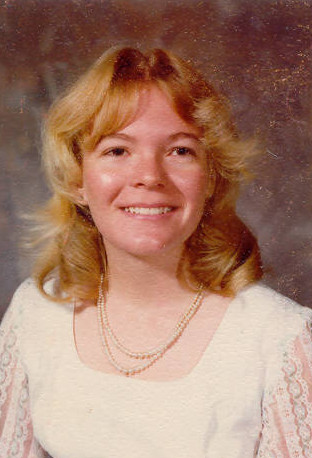
Jean and I were inseparable; partners-in-crime. People thought we were dating, and even though she was the first—and only—girl I've kissed and made out with (there was never any sex)—I only ever thought of her as my best bud. I think she viewed me as something more however, and when I ended up leaving Phoenix to go to the University of Arizona in Tucson, we both breathed a sigh of relief when she decided to stay behind. It was a breakup without any of the associated drama.
My senior year brought my unrequited love life new trouble in the form of Daniel Baxa.
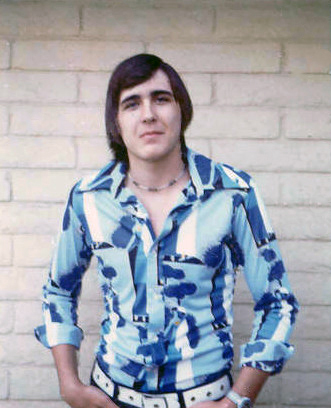
Tom and Mike were just warm-up acts. I fell hard for Daniel. But sadly, like Tom and Mike, it was ultimately not meant to be.
His family had just moved to Phoenix from somewhere and I have no memory of how or where we met or why we even started hanging together. Why do teenage boys do anything?
Why did I keep falling in love with straight boys? Because at the time I knew of no other gay boys in high school—or at least none I was even remotely attracted to. The ones who were gay were so obviously gay that they were the subject or scorn and ridicule wherever they went. It was the mid 70s, after all. Despite Stonewall years earlier, was no gay marriage, no Love, Simon positivity swirling around gay relationships.
Daniel was a bad boy. He smoked. He drank. And yet he drove a pink 1968 Mustang and loved ABBA. He was…confusing. As our friendship grew, he wasn't above physical contact, and many evenings while laying on my bed watching television, a spontaneous wrestling match would erupt, with one or the other of us getting pinned with obvious erections involved. But that was as far as it ever went, much to my disappointment. I often fantasized about just kissing him while pinned, yet never garnered enough courage to actually do it.
I was obsessed with Daniel, going so far as to climb up on the roof of our house to watch him arrive home at night from his job at Sirloin Stockade, telling my parents I was up there to "look at the stars." I even got a job at the same Sirloin Stockade the final summer before I headed to college—ostensibly to earn money for college—and it showed me what an absolute jerk he could be when it wasn't just the two of us together. It didn't sour me to him, but I learned that great life lesson of people weren't always what they seemed 100% of the time.
When I finally confessed my love, there was no big scene. I told him I loved him and he responded, "Oh, you mean like a friend?" "No," I replied. The color kind of drained from his face as I recall and he said something to the effect, "Look Mark, I like you, but I'm not…"
Holding back tears, I left his house and went home. That fall I moved to Tucson.
I heard from a mutual friend sometime later (who, by that time, also knew I was gay) that our parting left Daniel hurt and confused. He hadn't been ending our friendship; he was simply straight and didn't want anything more.
After getting his address from the same mutual friend many years later, I wrote him a letter, apologizing for the misunderstanding and asking if he'd like to talk. I never heard back.
Next time on Battlestar Galactica…
A Nice Little Mashup for Your Listening Pleasure
Hans Hoppenbrouwers: Donna Summer vs. Yazoo—I Feel Deep Love Situation
If Only
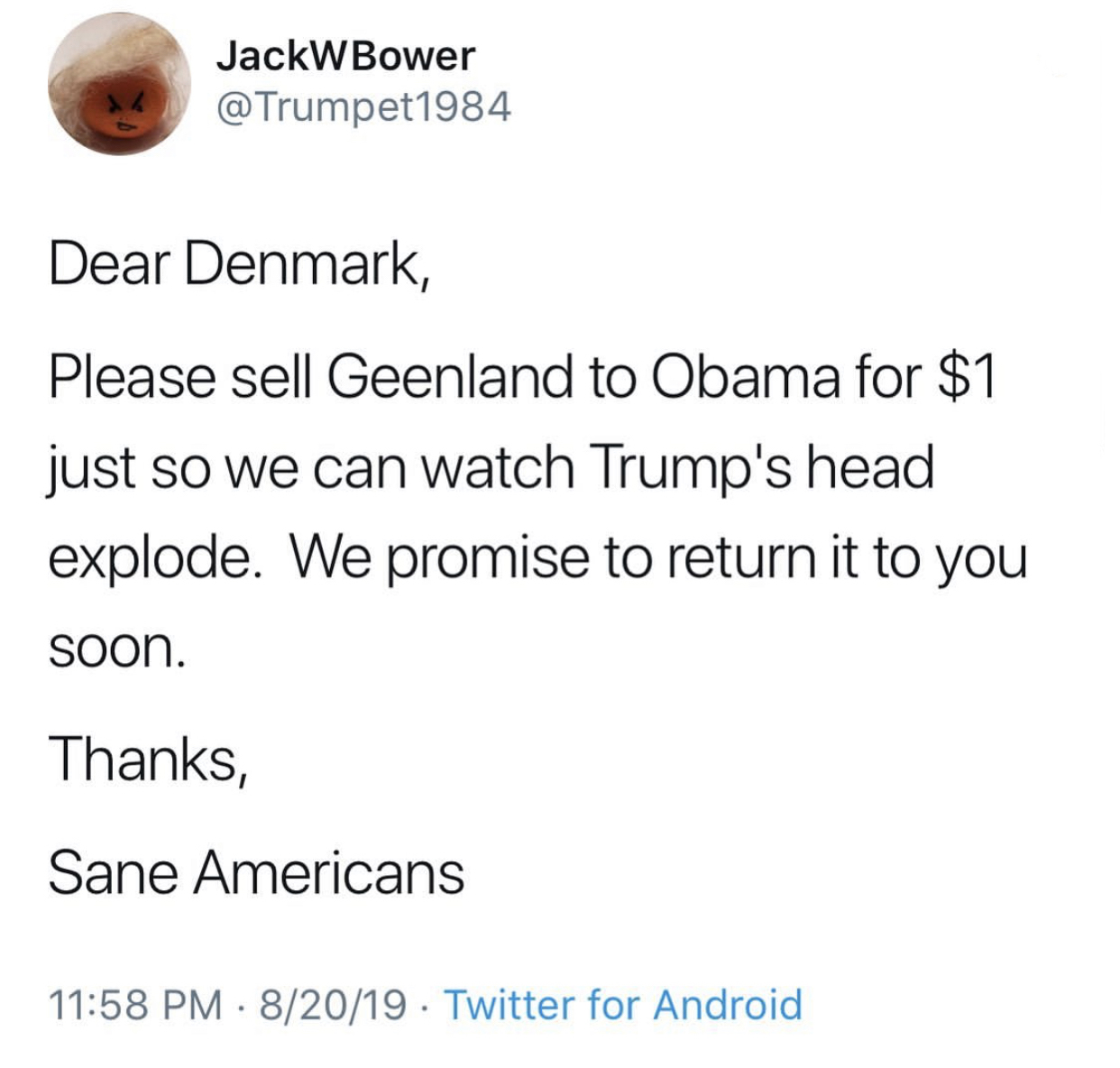
#truth
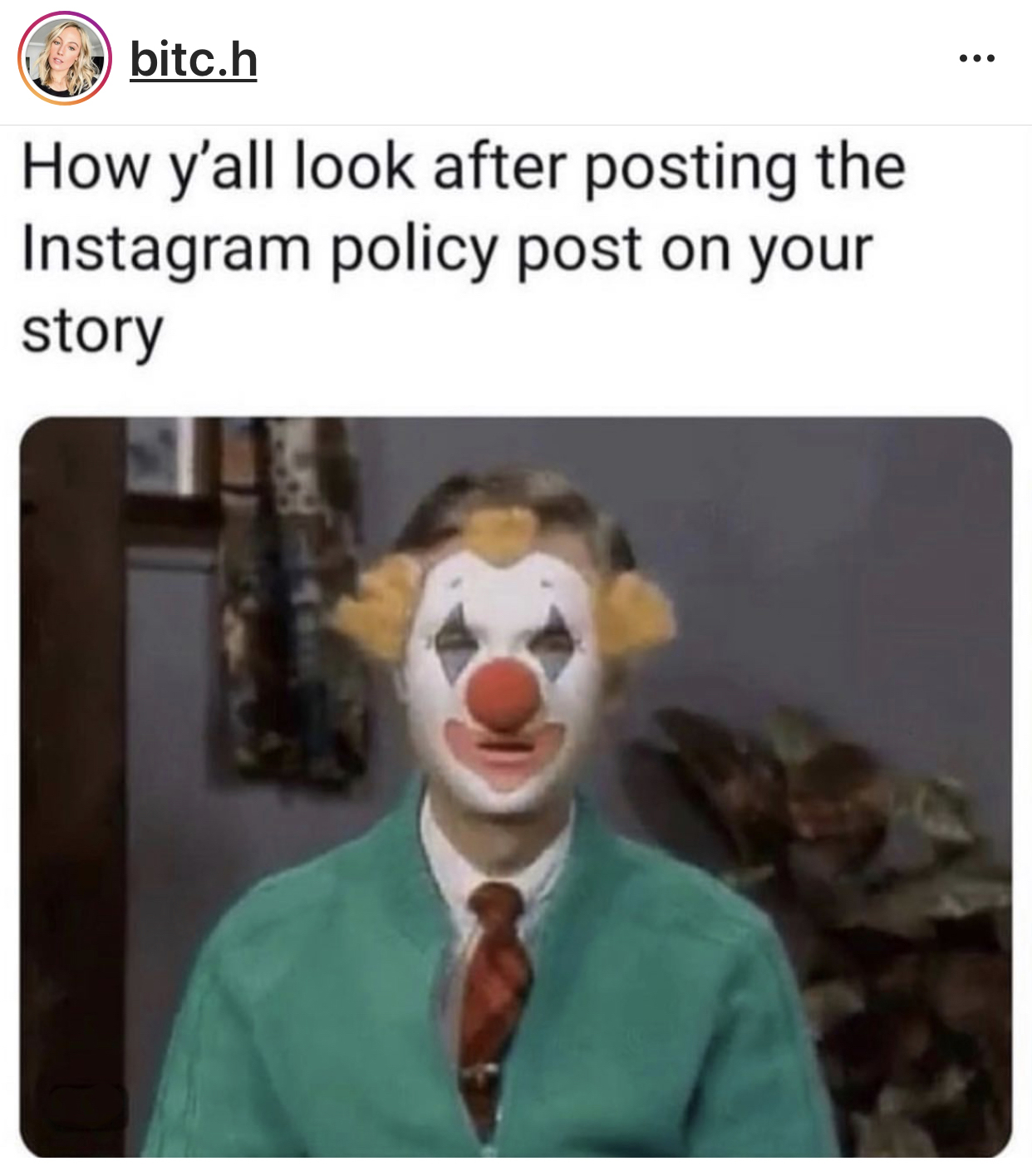
Weekend Update

365 Days of UNF: Day 236
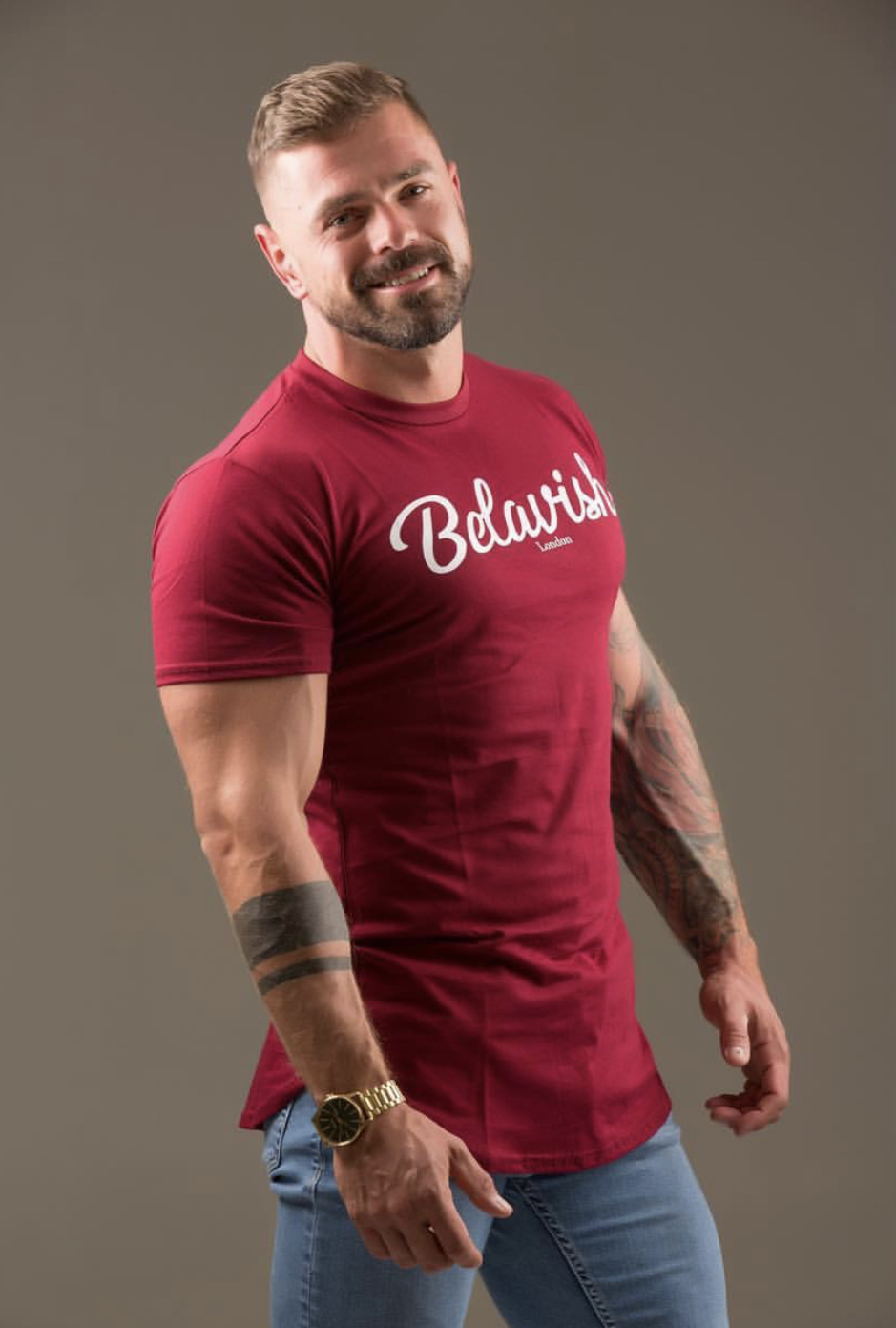
Released 37 Years Ago Today
https://www.youtube.com/watch?v=tLTGs4fqxBk&list=PLjIuADMrDKIaJThxTsBFO7d-tIiZfSsli
Yaz (Originally Yazoo): Upstairs at Eric's (1982)
Apple and Lew: A better Love Story than Twilight
The first 8 minutes…
Enough Snark and Horror For One Day
I'm in a horrible funk today. I need a break from all the horrific news swirling around us. So here's something that's not horrible.
Un-Fucking-Fit
From James Fallows at The Atlantic:
…But now we've had something we didn't see so clearly during the campaign. These are episodes of what would be called outright lunacy, if they occurred in any other setting: An actually consequential rift with a small but important NATO ally, arising from the idea that the U.S. would "buy Greenland." Trump's self-description as "the Chosen One," and his embrace of a supporter's description of him as the "second coming of God" and the "King of Israel." His logorrhea, drift, and fantastical claims in public rallies, and his flashes of belligerence at the slightest challenge in question sessions on the White House lawn. His utter lack of affect or empathy when personally meeting the most recent shooting victims, in Dayton and El Paso. His reduction of any event, whatsoever, into what people are saying about him.
Obviously I have no standing to say what medical pattern we are seeing, and where exactly it might lead. But just from life I know this:
- If an airline learned that a pilot was talking publicly about being "the Chosen One" or "the King of Israel" (or Scotland or whatever), the airline would be looking carefully into whether this person should be in the cockpit.
- If a hospital had a senior surgeon behaving as Trump now does, other doctors and nurses would be talking with administrators and lawyers before giving that surgeon the scalpel again.
- If a public company knew that a CEO was making costly strategic decisions on personal impulse or from personal vanity or slight, and was doing so more and more frequently, the board would be starting to act. (See: Uber, management history of.)
- If a university, museum, or other public institution had a leader who routinely insulted large parts of its constituency—racial or religious minorities, immigrants or international allies, women—the board would be starting to act.
- If the U.S. Navy knew that one of its commanders was routinely lying about important operational details, plus lashing out under criticism, plus talking in "Chosen One" terms, the Navy would not want that person in charge of, say, a nuclear-missile submarine. (See: The Queeg saga in The Caine Mutiny, which would make ideal late-summer reading or viewing for members of the White House staff.)
Yet now such a person is in charge not of one nuclear-missile submarine but all of them—and the bombers and ICBMs, and diplomatic military agreements, and the countless other ramifications of executive power.
If Donald Trump were in virtually any other position of responsibility, action would already be under way to remove him from that role. The board at a public company would have replaced him outright or arranged a discreet shift out of power. (Of course, he would never have gotten this far in a large public corporation.) The chain-of-command in the Navy or at an airline or in the hospital would at least call a time-out, and check his fitness, before putting him back on the bridge, or in the cockpit, or in the operating room. (Of course, he would never have gotten this far as a military officer, or a pilot, or a doctor.)
There are two exceptions. One is a purely family-run business, like the firm in which Trump spent his entire previous career. And the other is the U.S. presidency, where he will remain, despite more and more-manifest Queeg-like unfitness, as long as the GOP Senate stands with him.
(Why the Senate? Because the two constitutional means for removing a president, impeachment and the 25th Amendment, both ultimately require two thirds support from the Senate. Under the 25th Amendment, a majority of the Cabinet can remove a president—but if the president disagrees, he can retain the office unless two thirds of both the House and Senate vote against him, an even tougher standard than with impeachment. Once again it all comes back to Senate Majority Leader Mitch McConnell.)
Donald Trump is who we knew him to be. But now he's worse. The GOP Senate continues to show us what it is.
Something We've Known for YEARS
Such open displays of firearms – particularly an assault weapon – is but one dramatic Body Language example of male overcompensatory behavior. A profound affectation, it screams, "I am not comfortable in my masculinity" and "I am a beta male who desperately wants to be an alpha." pic.twitter.com/jpmSdsXrUc
— DrJackBrown 🌊 (@DrGJackBrown) August 6, 2019

Y'all Are Still Assuming There Will BE An Election
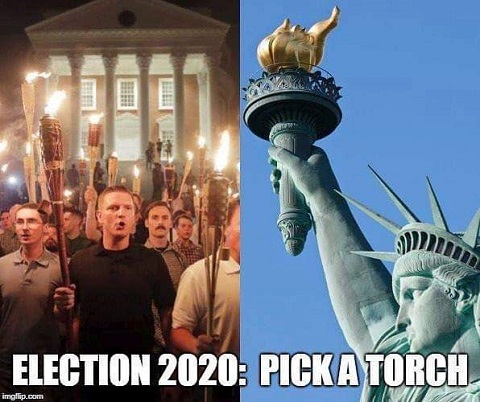
If it is obvious the orange shitgibbon is going down in historic proportions, I fully expect the planet to be a smoldering nuclear wasteland before the election actually happens.
And This is Where We Are
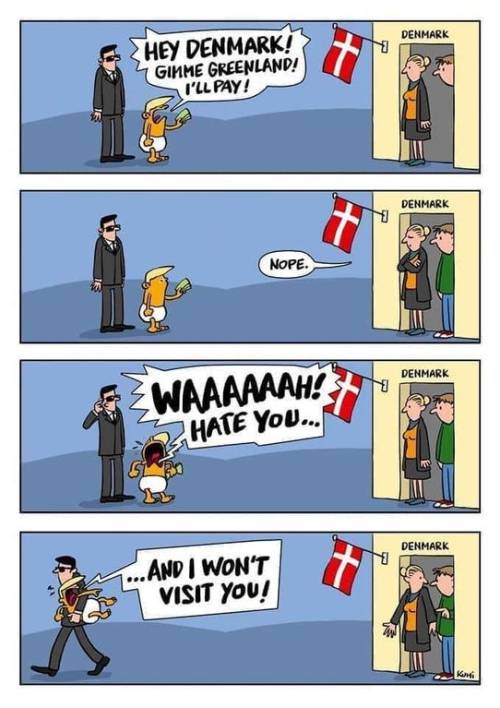
365 Days of UNF: Day 235
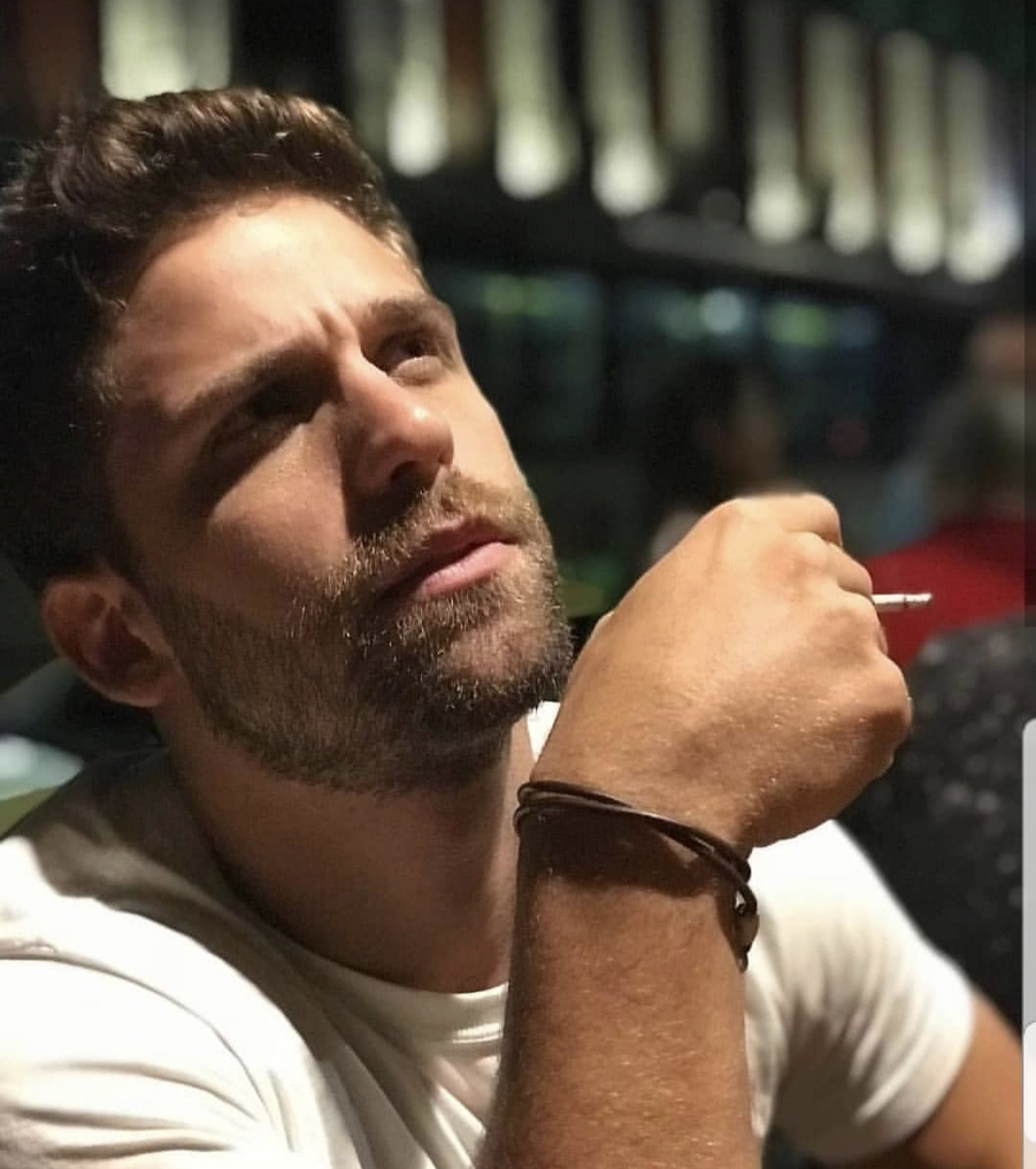
Clarity and Directness
From John Pavlovitz:
I believe this President, emboldened by this version of the Republican Party and a fully politicized Evangelical Church—is doing irreparable and continual harm to our rule of law, our standards of decency, our environment, our personal liberties, our elections, our people, and our standing in the world.
I see this Administration as an unprecedented betrayal of the freedoms and systems we all hold dear. I believe there has been a wholesale soul-selling of Republican politicians and Conservative Christian leaders; a historic power grab the likes of which we've never seen in this country.
That, along with the increasing silence of many of my white, moderate Christian friends, has left me feeling more burdened than ever to speak explicitly and repeatedly; to leverage my platform and my newsfeed and my voice on behalf of a nation and Church that have lost the plot.
Because of the volume and the relentlessness of this President's cruelty—there must be a similarly passionate and compassionate response.
Because every day we are bombarded with a new real or manufactured urgency—we need to step in again with facts and truth to combat it.
Because each morning a different attack comes: on migrants or meal vouchers or national parks or transgender soldiers or Jewish Americans or journalists or shooting victims—then each morning there must be those of us who unequivocally oppose it all.
As long as this man and his cadre of sycophants continues to shun their responsibility and horde wealth and preach fear and prey upon the vulnerable and serve only half of their constituents and use religion as a weapon—I'm going to continue to say everything.
You're free to label it "too political," but I know that's simply a term people use when someone else's boldness conflicts with their comfort, challenges their prejudices, calls out their malevolence, and rattles their privilege.
If this clarity and directness offends you or you feel I've grown too angry or too political, you're free to mute or unfriend me, to stop reading me or stop inviting me to dinner or talking to me at the bus stop. Social media is optional and my page is not a Democracy—though I'm working to make sure we continue to live in one.
Quote of the Day

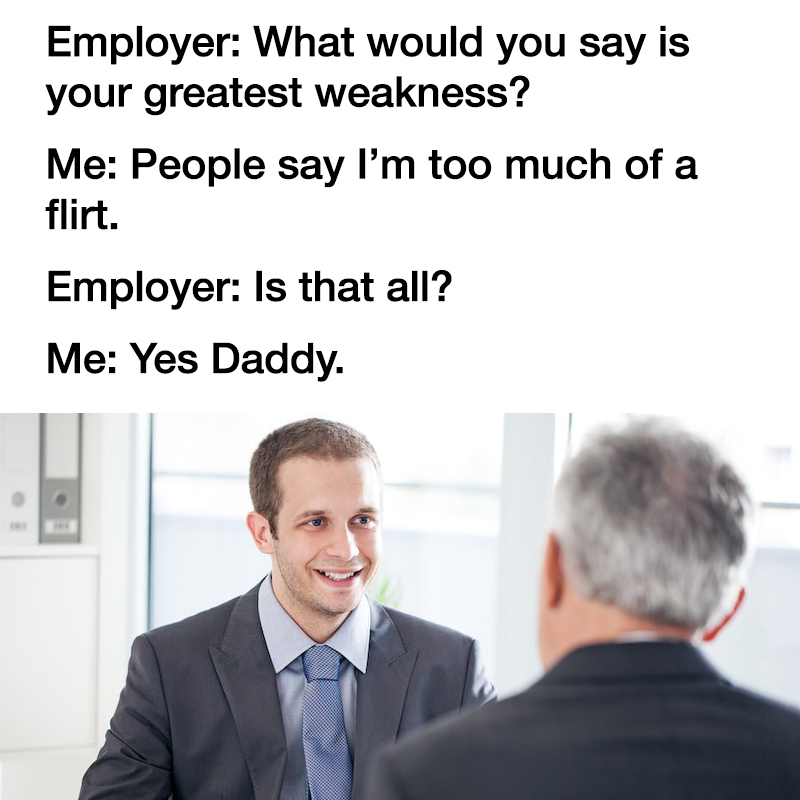
365 Days of UNF: Day 234
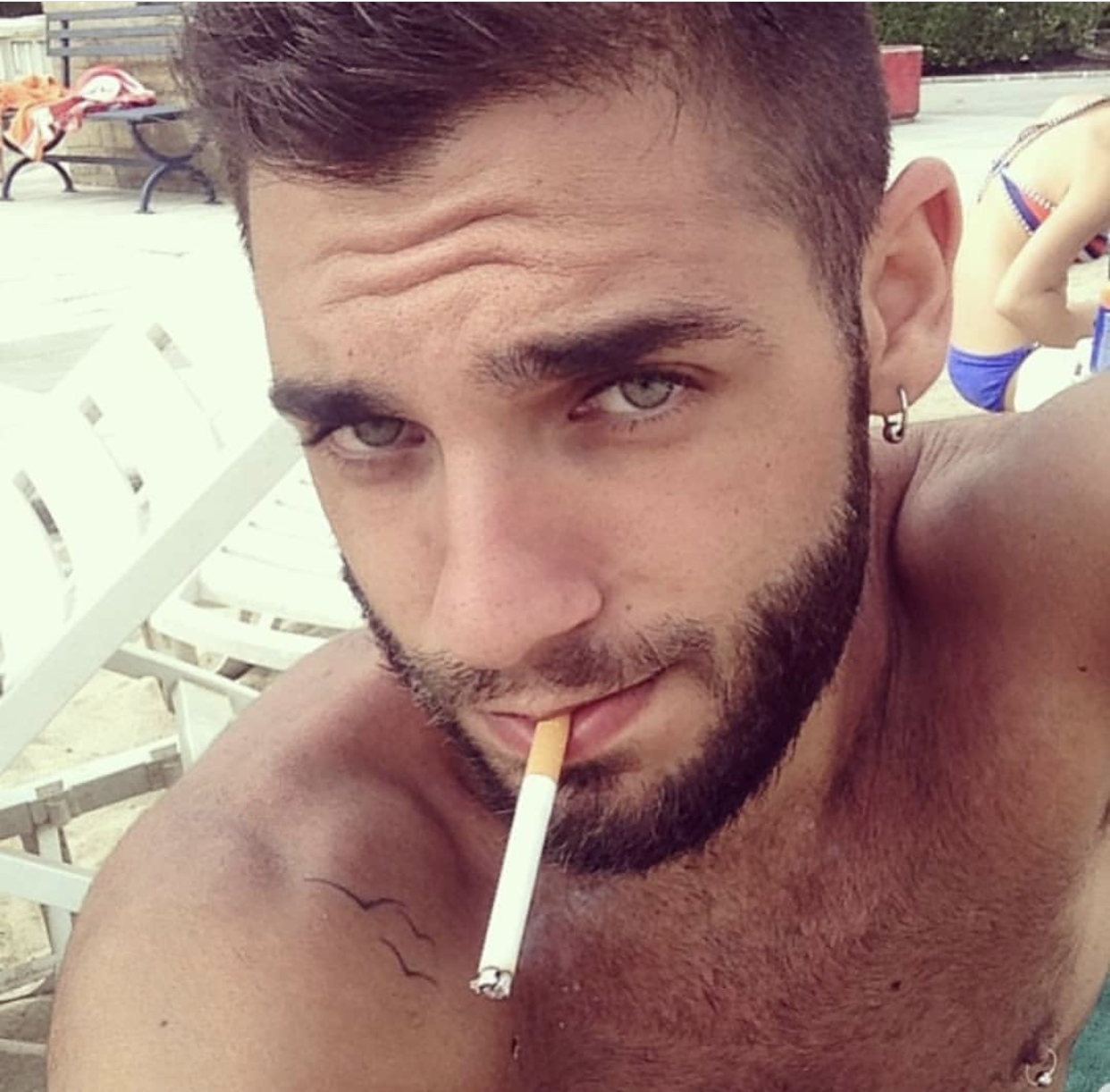
I Know It's Old, But It Never Gets Tired
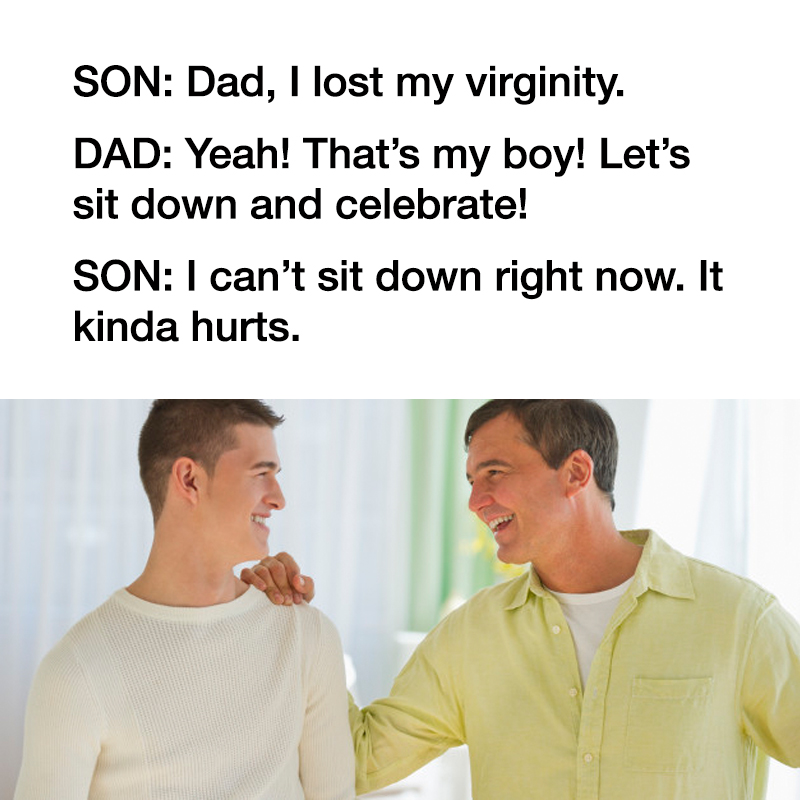
365 Days of UNF: Day 233
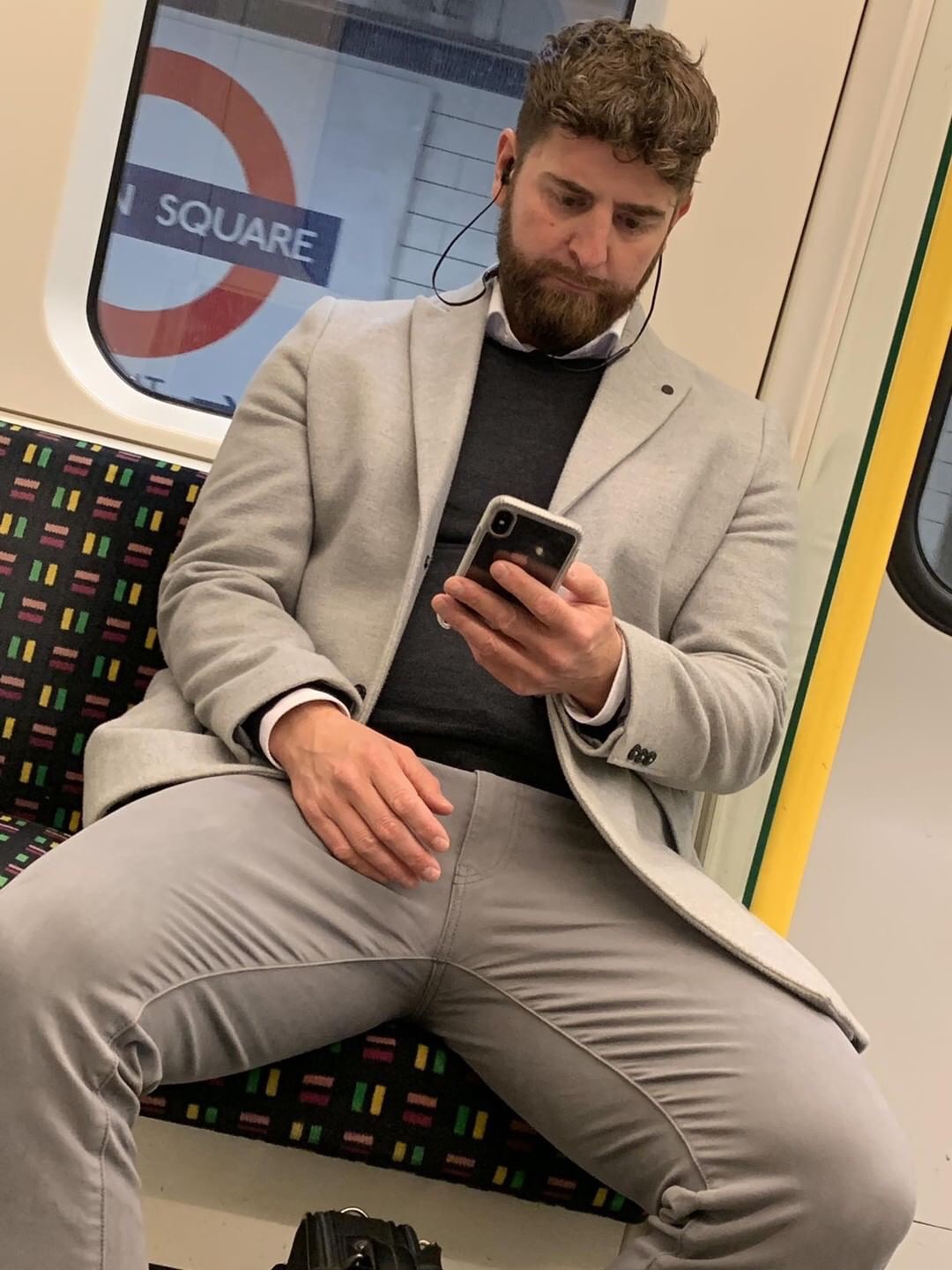
Quote of the Day
 So far you've survived 100% of your worst days. You're doing great!" ~ Unknown
So far you've survived 100% of your worst days. You're doing great!" ~ Unknown
365 Days of UNF: Day 232

Oh Hai!

Don't stop on my account…
Released 49 Years Ago Today
Carpenters: Close To You (1970)
Feeling old yet?
